
Arquivo para a ‘Linguagens’ Categoria
Positive signs in the Middle East and negative in Eastern Europe
After the first phase of the negotiations, Hamas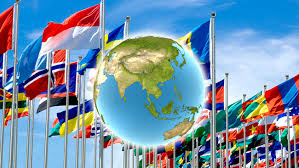 spokesman Abdel-Latif Al-Qanoua said on Saturday (08/03) that he sees positive signs in the negotiations for a second phase of the ceasefire with Israel, and 50 former hostages ask Netanyahu to implement a broad agreement on the conflict, Israel and Hamas disagree on the future of the conflict.
spokesman Abdel-Latif Al-Qanoua said on Saturday (08/03) that he sees positive signs in the negotiations for a second phase of the ceasefire with Israel, and 50 former hostages ask Netanyahu to implement a broad agreement on the conflict, Israel and Hamas disagree on the future of the conflict.
European countries, increasingly independent of American opinions, support the plan to rebuild the Gaza Strip. Unfortunately, last night Hamas militants came under heavy Israeli bombardment.
In Eastern Europe, the situation is becoming more and more dramatic, both on the battlefield where Ukraine is threatening to lose more territory. Putin wants to reach the port city of Odessa, which will make the war on the Black Sea more violent, and also to surround Ukrainian troops in their invaded territory in the Kursk region.
Ukraine has suffered huge bombardments, its energy infrastructure is increasingly compromised, Trump has withdrawn his support and now Ukraine no longer has the satellite images that allowed it to monitor the movements of Russian troops.
Although both sides of the conflict talk about ceasefires, the battlefield, the involvement of Europe, in practice, the ferocity of each side only grows and the militarization of Europe frightens any serious analyst, there is a bleak future in this conflict.
In a meeting between Ambassador Linda Thomas-Greenfield, the US representative to the United Nations (UN), and Brazilian Foreign Minister Mauro Vieira, held in Brasilia at the beginning of the month, Linda said that any solution in Eastern Europe must consider support for Ukraine, and this shows America’s good intentions.
The problem is that Russia rejects any concession of territory while Ukraine wants all of its territory back, as we’ve analyzed before there are interests in the region’s rare earth reserves, and this leads to an impasse.
The agreement on the transportation of grain, which passes through the Turkish-controlled Bosporus Strait, met on Friday (07/03) with no conclusions yet, but it is valid until May.
The statement by President Makron of France, who said that Russia was a “revisionist imperialist” referring to the Soviet period, was answered by Putin, who said that France had forgotten what “happened to Napoleon” who lost the war on Russian soil.
The world climate continues to be tense, but there are still efforts to come up with a proposal that will bring the opposing sides to a diplomatic negotiating table.
Serenity: choosing what is good
There is no serenity without reasonable choices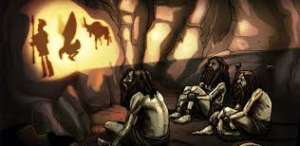 about personal, social and spiritual life, even worse is the one who tries to eliminate one of the three. Without personal life there is no being-there (Heidegger’s Dasein), without social life we live in a bubble, and without spiritual life we do not develop our essence.
about personal, social and spiritual life, even worse is the one who tries to eliminate one of the three. Without personal life there is no being-there (Heidegger’s Dasein), without social life we live in a bubble, and without spiritual life we do not develop our essence.
Among the choices we have to make in life, they cannot involve only one of the three aspects: the personal only makes us selfish and narcissistic, without the social we become alienated and have difficulty understanding reality, and without the spiritual we do not have a true asceticism that elevates us as human beings.
On the occasion of the centenary of his fellow countryman, the great musician Conradin Kreutzer, in a 1949 conference in his hometown of Meßkirch, Germany, wrote the text on Serenity.
Heidegger questions the difficulty of thinking even at that time, and asks if it is not through music and singing: “is not music distinguished by the fact that it ‘speaks’ through the mere resounding of its notes and does not need everyday language, the language of words?” and: “is it already a commemoration, which involves the act of thinking?” (Heidegger, 2008, p. 10).
Heidegger questions the difficulty of thinking even at that time, and asks whether it is not through music and song: “isn’t music distinguished by the fact that it ‘speaks’ through the mere resonation of its notes and does not need everyday language, the language of words?” and: “is it already a commemoration, which involves the act of thinking?” (Heidegger, 2008, p. 10).
When remembering his hometown, he recalls that [due to the war]: “they had to abandon their villages and cities, expelled from their native soil… they became strangers… and those who remained? They are often even more uprooted (heimatloser) than those who were expelled. Every hour and every day they are tied to radio and television… the cinema transports them weekly to the unusual domains, of representation that simulates a world that is not.” (Heidegger, 2008, p. 16), showing the relationship with technology. If you lived in our day and age, you would see how visible the relationship that is maintained is, now not transporting you to other realities, but to unrealities that transport your mind to the vulgar.
Thus, the choices that must be made become more radical. More than ever, it is necessary not only to choose what is good and healthy, but to fight so that this awareness is not lost in illusions.
Heidegger, M. (2008) Serenidade (Serenity). Lisbon: Instituto Piaget.
Beyond pain: choosing life
No to war, hatred and indifference means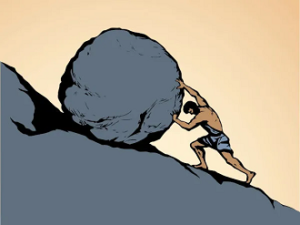 going beyond pain. It is often difficult to go through differences of opinion, conflicts of culture and even ideologies, but this is exactly what pain implies as a normal contingency of life.
going beyond pain. It is often difficult to go through differences of opinion, conflicts of culture and even ideologies, but this is exactly what pain implies as a normal contingency of life.
Byung-Chul Han, in his analysis of painkillers, describes permanent anesthesia as one that limits not only feelings: “Pain is stopped before it can set a narrative in motion” (p. 72), and also: “Hell is just like a palliative well-being zone” (p. 73).
“Today, we are not willing to expose ourselves to pain. Pain, however, is a midwife to the new, a midwife to the entirely other” (p. 73), so it leads to an encounter and to life, ‘it allows only the prose of well-being, that is, writing in the sunlight’ (idem).
In the inability to understand pain as a process of change, it is often replaced by resilience, which can make sense with great obstacles or a great effort to overcome a certain circumstance of pain, but in many cases, it is just a stubbornness with situations that lead to true happiness, what Sloterdijk calls a “society of exercises”, efforts that do not lead to overcoming.
The Greeks had the myth of Sisyphus (we’ve already posted about this, see the image), a cunning king who defied Death and Hades, resulting in his being condemned to eternally push a stone to the top of the hill, Albert Camus has a book that talks about this and updates the theme.
True resilience understands that there is a new path, a pain that “midwives the new”.
When the people complained about the passage from Egypt to the promised land, saying that they missed the onions and leftovers they ate as slaves to Pharaoh, Moses rebuked them and said (Deuteronomy 30:19): “I take heaven and earth as witnesses against you today that I have set before you life and death, blessing and cursing. Choose life, that you and your descendants may live…”, indicating the path to freedom and the building of their nation.
Facing difficulties, pain and even afflictions in difficult times certainly requires resilience, but it cannot be confused with error, sheer stubbornness or “exercises” that lead to nothing and do not favor finding happiness.
Han, B. C. (2021) Paliative Society: pain today. Transl. Lucas Machado, Brazil, Petrópolis: Ed. Vozes.
Pain and ashes
The period of Lent is the 40 days after Carnival, as it was already part of the early church, coming from the Easter of the Jews, it is before Carnival, it recalls the Jewish Easter (Pesach), which has the meaning of passage or liberation, remembering the period when they were slaves in Egypt.
as it was already part of the early church, coming from the Easter of the Jews, it is before Carnival, it recalls the Jewish Easter (Pesach), which has the meaning of passage or liberation, remembering the period when they were slaves in Egypt.
Christian Easter is a renewal, it recalls the death and resurrection of Jesus. We are reading and remembering the book by Byung-Chul Han (who is not a Christian) where he talks about the ontological meaning of pain and its current erasure, clarifying: “we live in a society with increasing loneliness and isolation” (Han, 2021, p. 59).
The author quotes Viktor von Weizsäcker in his essay “The Pains”, where he characterizes pain as a “truth that has become flesh”, as a “becoming flesh of truth” (p. 61), and also “Everything that is true is painful” (idem).
Society without truths, says the author in the following passage, is “an unparalleled hell”, and “pain can only arise where true belonging is threatened. Without pain, then, we are blind, incapable of truth and knowledge” (p. 62).
So in Christianity and Judaism, the ashes and Passover as a way of of 40 days, appear to remind us of the dust we are and the path of salvation and belonging we must follow: “pain is distinction [Unterschied]. It articulates life” (pg. 63), ‘it marks boundaries’.
“Pain is reality. It has a reality effect. We first perceive reality in the resistance that hurts. The permanent anaesthesia of the palliative society derealizes [entwirklicht] the world” (p. 64) and ‘reality returns in the form of a viral counter-body’ (p. 65) wrote the author because it was the period of the pandemic.
So the ashes and the period of Lent for Christians is to renew the period of Jesus’ passion as its apex in Holy Week, where there is the apex of the pain of crucifixion and the apex of renewal that is his resurrection, Christians or not, this is the true and real logic of life.
If we don’t understand this, we become paralyzed by the pain of hatred, wars, indifference, various types of injustice, the exclusion of the Other, in short, the non-life that all this senselessness of pain causes, and so it is necessary to remember the dust of ashes, everything that passes and that only makes sense if we understand pain not as an end, but as a passage to life.
Han, B. C. (2021) Paliative Society: pain today. Transl. Lucas Machado, Brazil, Petrópolis: Ed. Vozes.
Pain and its meaning
In his book “Palliative Society: Pain Today”,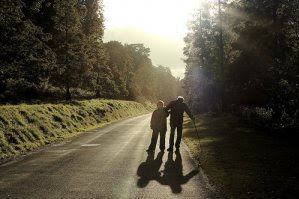 Byung-Chul Han characterizes the being who has “objectified pain” as one who lives in a “purely bodily affliction”, because being “endowed with meaning [Sinnhaftigkeit] pain presupposes a narrative that inserts life into a horizon of meaning”, so without a bodily life linked to a greater meaning it is “a bare life emptied of meaning, which no longer narrates” (Han, 2021, p. 46).
Byung-Chul Han characterizes the being who has “objectified pain” as one who lives in a “purely bodily affliction”, because being “endowed with meaning [Sinnhaftigkeit] pain presupposes a narrative that inserts life into a horizon of meaning”, so without a bodily life linked to a greater meaning it is “a bare life emptied of meaning, which no longer narrates” (Han, 2021, p. 46).
He quotes Walter Benjamin, in Images of Thought, where he shows the healing power of narration: “The child is sick. The mother brings her to bed and sits down beside her. And then she begins to tell stories” (p. 47), at least that’s what used to be done in the old days, before taking the child to the doctor.
As we quoted in last month’s blog: “today we live in a post-narrative time” (p. 48), “the hypersensitive human being of late modernity, who suffers senseless pain … that wave of pain in which the spirit recognizes its impotence sinks rapidly today” (p. 49).
He also quotes E. Jünger’s “On Pain”: “The human being deludes himself that he is safe, while it is only a matter of time before he is dragged into the abyss by the elements” (p. 55).
Jünger explains that pain cannot be made to disappear, he speaks of an “economy of pain, if placed in the background in this way, it appears hidden in an ‘invisible capital’, which ‘increases with interest and interest on interest’. Paraphrasing Hegel’s “cunning of reason”, Jünger postulates the “cunning of pain”, in this way, it is not autocratic power, but pain that has not been objectified in some form of domination.
He writes, quoting Jünger: “No claim is more certain than that which pain has on life. Where pain is spared, equilibrium is restored according to the laws of an entirely determined economy” (pp. 55-56).
Thus it is possible to speak, according to the author, “borrowing a well-known expression, of a ‘cunning of pain’, which achieves its goal by all means” (p. 56), “… the scattered light with which pain, in return, begins to fill the space” (idem), only if this light is outside our objectified “security” (that linked to material goods and comforts) can we find another, more lasting type of ‘conquests’, which are not objectifiable.
The author goes on to explain that “in a palliative society hostile to pain, silent pains multiply, crowded into the margins, persisting in an absence of meaning, speech and image” (p. 57).
Far from narcissism and selfishness, we find a meaning to pain, we find more than a meaning, a reward that comes from our solidarity, from the encounter with the Other and with the true happiness of life in the family, in the community and in true security.
Han, B. C. (2021) Paliative Society: pain today. Transl. Lucas Machado, Brazil, Petrópolis: Ed. Vozes.
A significant milestone for this blog
In February, we reached a milestone of  almost two thousand hits a day on our content, 55,980 in total. If we had just 20 more hits, we would have reached exactly 56,000, which divided by the 28 days of February would give us 2,000 hits a day.
almost two thousand hits a day on our content, 55,980 in total. If we had just 20 more hits, we would have reached exactly 56,000, which divided by the 28 days of February would give us 2,000 hits a day.
The main concern of this blog is to maintain a healthy culture of dialogue, respecting the different positions, trying to divert the current polarization without omitting the excesses and outbursts of hatred and bravery that characterize the contemporary world and without forgetting good culture.
We don’t omit our Christian vision, which in our view should be one of dialogue and respect for all other cultures, ecumenism with other religions and the defense of life, greater social justice and the reaffirmation of scientific culture, without forgetting that it depends on method and not opting for the current polarization that distorts true scientific knowledge, ignores original cultures and other peoples who have their own culture in their development.
I would also clarify that our vision of Christianity involves true spirituality and recognizes a culture confused about its true roots: solidarity, humanitarianism and empathy between peoples. Fundamentalism has nothing to do with orthodoxy, which recognizes as theological values: charity (infuse), true hope (Psalm 146:5, Jeremiah 17:7,8, Ephesians: 1, 18) and true faith that believes in the historical and divine truth of Jesus.
We will never deny science and good culture, remembering that they need method and good storytelling, a theme that is almost always present in our analysis of today’s society and culture.
But our central concern in the contemporary world is peace, empathy and justice.
Thank you to my readers, especially those who, while disagreeing, keep the dialog going!!!
Friendship and the Other
In an individualistic world, where people look for bubbles where everyone “has the same thought”, friendship seems to be the path of the same and not the Other, worse when this is seen as religion, pushing away bad friendships, when in fact the Other will always be different, there is no “soulmate”, “half of the orange” or any other idealistic concept, the next in the religious sense will always be Other different from my mirror.
for bubbles where everyone “has the same thought”, friendship seems to be the path of the same and not the Other, worse when this is seen as religion, pushing away bad friendships, when in fact the Other will always be different, there is no “soulmate”, “half of the orange” or any other idealistic concept, the next in the religious sense will always be Other different from my mirror.
Aristotle goes against the biblical meaning of neighbor to define friendship: “perfect friendship is that which exists between men who are good (see previous post) and similar in virtue, as such people desire good for each other in an identical way, and are good in themselves” (EN VIII, 1155/2021, p. 167).
Thus, avoiding “false” friendships is avoiding a world without virtues and without any desire for understanding, thus opposing the idealistic definitions of friendships, where there is “affection” between narcissists and egocentrics.
About false friendships Aristotle warns that they do not reveal themselves, we were the ones who had a false concept out of interest or little known, he thus divides friendships into three types: virtuous (the main one at the top), useful where there are common interests and pleasant where there is a mutual relational love, which makes it possible to bear differences, but there are almost always conflicts.
Paul Ricoeur wrote about usefulness in “Le socius et le prochain” (The partner and the neighbor), where the neighbor is a world where the center of relationships can be long-lasting, but mediated by complex and anonymous collective circuits, where there are common interests, when they end the “society” falls apart.
Biblical wisdom about friendship can be found in Ecclesiasticus 6:5-7: “A gentle word multiplies friends and calms enemies; an affable tongue multiplies greetings. Let those who greet you be numerous, but your counselors be one among a thousand. If you want to acquire a friend, acquire him through trial; and do not be quick to trust in him.”
This highlights the concept of empathy through pleasant words and reinforces Aristotle’s concept that we did not “lose” friendship, we did not have a correct concept about it, in the biblical sense “do not rush to trust him”, and your advisors “one among a thousand” we see the perverse influence of modern narratives of “coaching”, “influencers” and “idols”.
Finding friendship requires wisdom, in a world of shallow culture and shallow elaborations, it is not uncommon to seek security in artificial “bubbles” and groups that do not even understand their own foundations.
A true humanism, a true spirituality or just “a path” needs a method, a deep elaboration and a detailed examination of the consequences.
Aristotle. Nicomachean ethics. (2012) Trans. Torrieri Guimarães. Brazil, São Paulo: Martin Claret.
Evil and its ontological meaning
Every analysis of the contemporary world is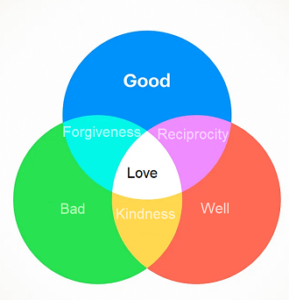 permeated (if not itself) by a Manichaean sense: the struggle of good against evil, and this depends on the particular narrative.
permeated (if not itself) by a Manichaean sense: the struggle of good against evil, and this depends on the particular narrative.
Manichaeism presents good and evil as a basic question for understanding the universe, as opposing forces such as action and reaction, or attraction and repulsion – you could list a large number of contemporary books that describe reality in this way.
Here we are interested in two essential points: the religious sense and the political sense. In the religious world there is a growing discourse that “we are good against evil”, but a good reading of patristics (the religious of the early Christian era) helps us to understand that this is not the case.
Augustine of Hippo (354-430), who was a Manichaean for nine years, saw in Manichaeism the struggle between the soul and the body and thus justified the struggle between good and evil, but he revised this position under the strong influence of Ambrose of Milan (340-397), who was to exert a strong influence on Augustine, one of whose phrases was: “Tears do not ask for forgiveness, but achieve it” and so they achieve good.
Thus, Augustine began to give evil an ontological meaning, understanding that body and soul are related, saying: “However, I had no clear idea of the cause of evil. However, whatever it was, looking for it couldn’t force me to take an immutable God as mutable, if I didn’t want to become what I was looking for. That’s why, in my peaceful search, I was certain of the falsity of the doctrine of those from whom I had turned away out of conviction. I really saw that they were studying the problem of the origin of evil, being themselves immersed in malice, to the point of preferring to imagine your substance subject to evil, rather than recognizing themselves capable of committing it” (Augustine, 2014, p. 172) in other words, they achieve good.
It is also necessary, for an in-depth analysis, to read: “The Nature of Good”, “Free Will” to understand the problem of human freedom which can refuse to do good and free will which is this freedom of choice, but Confessions is his main work.
Augustine wanted to break away from dualism and in Confessions (pp. 174-175) he develops the idea that evil is not a substance, because if it were a substance, it would be a good. And, in fact, it would be an incorruptible substance and, therefore, undoubtedly a great good, and so what was corruptible and subject to deterioration has no eternal existence, so he exchanges his Manichaeism for Christianity.
Seen from the perspective of modern narratives that seek to deny the existence of the incorruptible and thus admit the existence of God or at least something incorruptible that gives substance to the cosmos, Byung-Chul Han says of modern narrative: “We live today in a post-narrative time. Not narration [Erzählung], but counting [Zählung] determines our life. Narrative is the capacity of the spirit to overcome the contingency of the body” (Sociedade Paliativa: a dor hoje, 2021, Brazil, ed. Vozes).
In order to justify all disaffection, we need a narrative; if we escape from it, we do good.
Agostinho. Confissões. Tradução de Maria Luiza Jardim Amarante. São Paulo: Paulus, 2014.
The civilizational malaise
The Burnout Society is also a society that led adults, young people and adolescents to psychiatrists or alternative methods, and to those who have few resources, it led to closed groups with sometimes dubious social conscience.
led adults, young people and adolescents to psychiatrists or alternative methods, and to those who have few resources, it led to closed groups with sometimes dubious social conscience.
The number of mental illnesses in children and adolescents should pay attention to this situation.
It is no coincidence that Freud wrote at the beginning of the last century about this “Civilization’s malaise” (Freud, 1930) the author will not discuss the psychic issue itself, but the distant one between instinctual impulses and civilization, that is, contemporary culture that takes man to his opposite as much as nature and his well-being.
Intolerance to errors, even scientific misunderstanding, the demand for effectiveness in all fields, the lack of empathy and love in everyday life and in particular, of values that are natural and lead to true human asceticism, takes emotional and social conflicts to dangerous limits.
By detecting this evil, Freud himself, the founder of psychiatry, did not take humanity to the couch, and I feel he pointed out that there are cultural evils and these must be remedied first, that is not what was done, in this sense Sloterdijk is right, human “domestication” was possible (Rules for the human park), which caused great discussion in Germany in the months of September and October 1999.
Even if religions themselves live on this civilizational evil, the true asceticism that is climbing the mountain of wisdom with values that support this asceticism on one’s feet is necessary to reach a true civilizational stage, it is necessary to “love in absence” it is necessary to aim for the true values that lead to plenitude and to true and unique comfort, empathy and love.
When we remove this from society, it begins to move towards isolation, hatred and conflicts and “malaise” are just the consequences of the absence of this “natural” state, but a plant only evolves if cared for in its natural conditions: adequate fertilizer, water and sun.
Wisdom, serenity and balance are possible remedies for the current warlike spirit.
Freud, S. (1974) O mal-estar na civilização (1930 [1929]). In: ______. O futuro de uma ilusão, o mal-estar na civilização e outros trabalhos (1927-1931). Direção geral da tradução: Jayme Salomão. Brazil, Rio de Janeiro: Imago, p. 73-171. (Brazilian edition of complete Works of Sigmund Freud, 21)
Delay and the meaning of life
Just like any appreciation of art, any narration that is not a fragmented narrative, requires a sense of appreciation, sensitivity and empathy and this means a delay in the time of view, Byung-Chul Han wrote: “the world is loaded with meaning. The gods are nothing more than bearers of meaning” (Han, 2016, p. 25), I’m not looking at life as a pantheist here, but dialoguing with any possibility of contemplation.
narration that is not a fragmented narrative, requires a sense of appreciation, sensitivity and empathy and this means a delay in the time of view, Byung-Chul Han wrote: “the world is loaded with meaning. The gods are nothing more than bearers of meaning” (Han, 2016, p. 25), I’m not looking at life as a pantheist here, but dialoguing with any possibility of contemplation.
The masters of contemplation were masters of taking their time and “appreciating” life (read Vita Contemplativa by Byung-Chul Han), for this appreciation we must go against the current world where “narrative creates the world of nothingness” (p. 25).
Han reveals the relationship we have with the senses today: “Here [and now] everything has meaning is the eternal repetition of the same, the reproduction of what has already been, of the imperishable truth. This is how prehistoric man lives with a present that lasts” (Han, 2016, p. 26), a present that is not an update but a repetition, which is why there is confusion with the virtual, which in the etymological sense of the word is that which is already potential, and not the same.
Its deeper meaning also reveals the post-truth: “time will be defactified (defaktiziert) and, at the same time, denaturalized (entnaturalisier) (Han, 2016, p. 28) and the revolution today refers to a defactified time, i.e. a return to previous models that do not correspond to current problems and realities, which is why it is necessary to falsify it.
Byung-Chul separates the time of orality from history by understanding “the mythical that functions as an image”, and sees the history of the Gutenberg galaxy as one that “gives way to information” (Han, 2016, p. 30), to give it an unprecedented definition: “in reality, information presents another paradigm. Within it dwells another very different temporality. It is a manifestation of atomized time, of a time of points (Punkt-zeit)” (Han, 2016, p. 31), without having read Stephen Hawking’s ‘information paradox’ as a prediction of ‘energies’ escaping from the black hole.
It is necessary to separate the cosmological reality of this information, the megatelescope James Webb detected these “energies” from the reality of atomized and fragmented information, there is no contextualization of thought, its etymology and its contextual meaning, a world of denaturalized “information” as Han points out.
All this isn’t philosophy, it’s the daily information consumption of haters, opposed to the culture of peoples and nations, due to its fragmentation and the lack of a meaningful narrative.
That’s why anxiety, the consumption of low-level information, isn’t just disinformation, because those who proclaim it don’t look for the etymological, social roots of the thoughts they have constructed and which can make sense of them.
*defatikiziert: could be translated as in-fact, but the translator was careful to change it (de is “not”).
Han, Byung-Chul. (2016) O Aroma do Tempo: um ensaio Filosófico sobre a Arte da Demora, Lisbon. Ed. Relógio d´Água.

